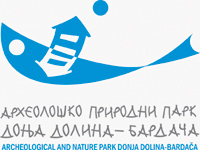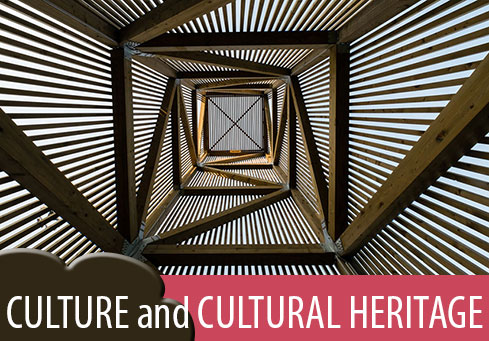Local Development Pilot Projects (LDPP) - Archaeological/Nature Park of Donja Dolina-Bardaca (Municipalities of Srbac and Gradiška), Bosnia and Herzegovina

The impressive hilly landscape is covered by deciduous and conifer forests along the southern bank of the Sava River near its junction with the Vrbas River, with significant natural and historic beauties such as the Trnovac cave and the old church of Romanovci. Rich in pastures and arable land, with a moderate climate, the territory is marked by agriculture and livestock, with fishing as still one of the main economic activities of the population. The name Donja Dolina – Bardača is composed of the characteristic wetland of Bardača with its marshy vegetation of swamps, regular flooded meadows and forests representing an important habitat for wild life, plants and animals, especially for various fish species and many migratory birds. The wetland is protected as an “Important Bird Area” and a designated Ramsar site. The archaeological site of Donja Dolina, one of the most significant trade and production centres on the Balkan Peninsula from the late Bronze to the Iron Age, represents the most important cultural heritage; complemented by other archaeological sites, medieval monasteries and wooden churches. Local associations and NGOs are moreover very active in reviving traditions. Local traditional crafts are still being practised.
This sensitive eco-system was at risk due to increasingly intense agricultural exploitation and fishing. Pesticides and fertilizers are used by locals, polluting the water as the most important natural resource. Fishponds have been privatised with increased fishing as a consequence, putting some species at risk of disappearance. Wood-cutting and the hunting of birds are not controlled. This threatened environment is inscribed in a wider socio-economic context of negative demographic processes: a decrease in economic activities, low employment perspectives with irregular income and economic insecurity leading young people to emigrate, leaving an aging population behind. Rural households and farms, whole villages, are being abandoned. A general distrust reigns among the local population about all activities, projects and initiatives coming from national or international institutions and actors. People do not see any direct impact of all these analyses, strategies and plans. There is no improvement in their worsening situation. In this social and tense atmosphere, temporary visitors, weekend tourists who build secondary residences, all reinforce the xenophobia among the already uncooperative local population.
Upon the initiative of the municipalities, the public institution “Archaeological and Nature Park Donja Dolina – Bardača” was established in 2008 and the Local Development Pilot Project was initiated by federal institutions, with the support of Republika Srpska institutions. The pilot territory was defined principally according to cultural or even archaeological criteria. It did not offer the social and economic critical mass indispensable for a successful LDPP. Local stakeholders’ interest was never really raised and the process was essentially carried out by institutions. The lack of action over too long a period of time, together with the departure of the initiators, have demotivated the partners and led to the project being stopped in 2011.



